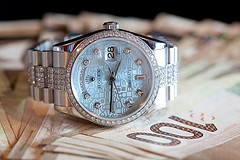Why Market Luxury Goods Online?
A short summary on customer insights and market research data
Today’s luxury shoppers now use the Internet as a tool to find inspiration and to learn about luxury products or services. Across income and age, luxury brand websites, along with consumer review websites are frequently accessed to find information on luxury items before making a purchase.
The affluent group is also increasingly participating in social networking forums, allowing luxury shoppers to share their thoughts and opinions on luxury items. And when it comes to Internet advertising, they are comfortable with seeing online ads for luxury products and services and “clicking thru” to learn more and make a purchase.
Due to the increasing reliance on the Internet for inspiration and information, luxury marketers must commit to making their online sites and ads both visually and intellectually engaging. Also, an understanding of social networking is important and will increasingly become essential to reaching luxury consumers.
As we look toward the future, the young luxury consumer group is a powerful target market. When combined, the Gen X and Millennial segments are about one and a half times the size of the Boomer segment. These younger consumers grew up with the luxury items that their Boomer parents bought, making them more brand-aware and consumer-savvy than any other generation. And due to their comfort level with the Internet, the medium will increasingly serve as a competitive tool as long as it works to promote the brand’s exclusiveness and quality. (“Outspending baby boomers; Outlays on luxury goods and services exceed parents’; traveling in style,” Crain’s New York Business, April 2, 2007).
Furthermore, Time’s recent feature on the Millennial luxury consumer revealed that the age 18-27, is much more “psychologically engaged in luxury than their parents’ generation” in core luxuries despite the fact that their income is lower. Time’s survey of 1,187 Millennials and 1,122 boomers found that with the exception of luxury travel, Millennials were more interested than boomers in owning or using all luxury products and services asked about, including yachts, private jets and luxury sports equipment. (“Global Millennials,” Time, April 1, 2008).
There is no doubt that the convergence of many factors, such as age, income shopping habits and a need for convenience, have generated a new phenomenon—online shopping for luxury goods. Going forward, those same factors, in combination with the evolution and increasing acceptance of the Internet, are likely to generate even more challenges and opportunities for luxury marketers, particularly related to establishing and maintaining an online competitive advantage.






As ecommerce grows, so will its impact on the overall economy. An even larger increase in economy wide productivity levels may result from productivity gains by business firms and companies not engaged in e-commerce as they respond to this new source of competition. Businesses recognizing this new opportunity and seeing the potential impact of e-commerce is important for policy makers, and forecasters as they project economic activity for the future. Regards
Nice points made; the online luxury market should continue to grow with more people becoming engaged and comfortable with it. It also has the convenience factor going for it which means a lot for the time constrained. Its important to think about this on a global basis.